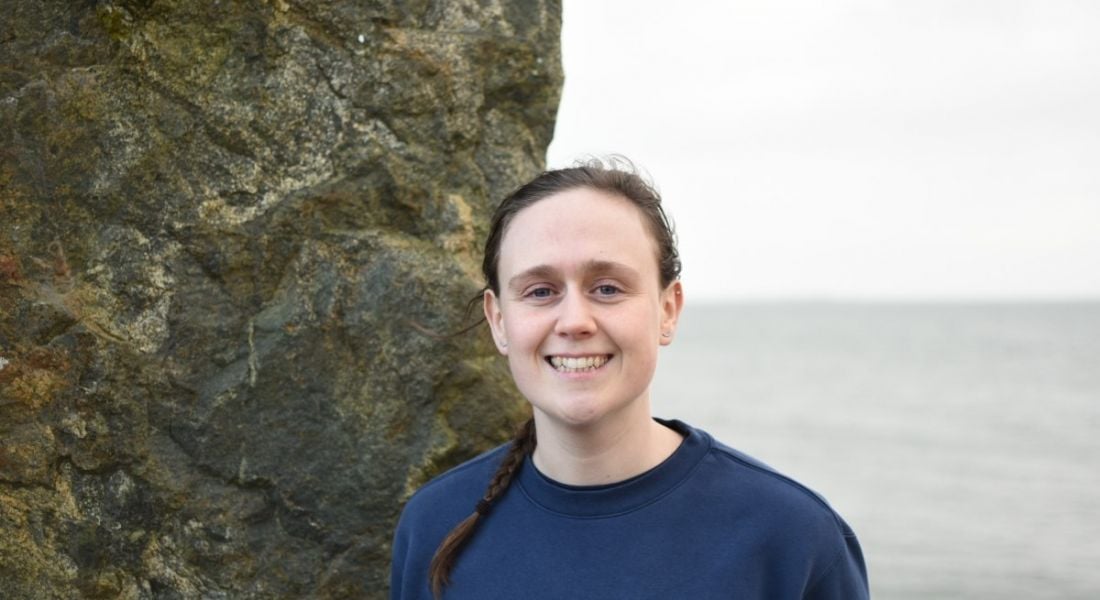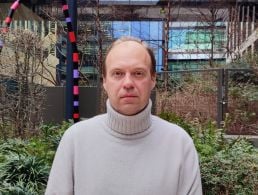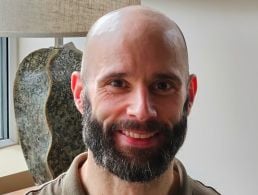Bristol Myers Squibb’s Eimear Higgins discusses her new role as engineering planner and what she enjoys about working in the engineering sector.
Eimear Higgins is an engineering planner working at Bristol Myers Squibb (BMS).
Since April 2022, she has been working in the reliability engineering planning team at the BMS facility in Cruiserath, and began her current role just over a month ago.
‘Don’t let yourself be put off by some of the preconceptions around engineering. If it is something you have an interest in, believe in your own ability, and go for it’
– EIMEAR HIGGINS
If there is such a thing, can you describe a typical day in the job?
Things can change very quickly at BMS Cruiserath Biologics, so a good portion of my morning is typically spent reviewing planned works and catching up on any issues or changes from the past 24 hours so that the relevant stakeholders can be updated.
In the engineering planning team, we are responsible for the maintenance planning of nearly all equipment in our multi-product cell culture (MPCC) manufacturing area. As a result, a lot of my day can be spent interacting with various teams and people, both internal and external, in relation to the planning and execution of works.
Being quite new to the role, and with so much to keep track of, I am constantly learning and trying to find a system for managing my workload that works best for me day-to-day. This week, I have been trying to include a 10-minute review to the end of each day.
What types of engineering projects do you work on?
To date, a lot of the projects I’ve been involved in have been smaller projects aiming to improve elements of our planning process. Trialling new ideas and finding practical solutions to problems is something I have always enjoyed. Within our wider reliability team, there are always ongoing projects to improve our project management (PM) programme. I’d like to get more involved with some of these projects going forward.
What engineering skills do you use on a daily basis?
Organisation, communication and attention to detail are probably the three skills I use most on a daily basis. These are absolutely essential to successfully planning our maintenance works. They are skills I am constantly trying to improve and develop. Maximo, Excel and Spotfire are some of the programs I use daily.
What are the hardest parts of engineering, and how do you navigate them?
One of the things I find most difficult, is feeling like I have not done enough. There are days when I feel I have been busy all day but have not actually achieved very much. When there is always plenty to do, days like this can be particularly challenging and it can be hard not to doubt your own abilities and to switch off when you get home.
To help with this, I am learning ways to better manage my time and to not focus too much on these days. My manager has been a great support to me at these times. The challenging days are outweighed by the good days – when works you’ve planned are all completed, or you were able to help someone with a problem or when team metrics show positive improvements. These days can give you the boost you need!
What skills and tools are you using to communicate daily with your colleagues?
We communicate mostly by Teams and email. We are trying out new ways to streamline how we communicate within our team and interdepartmentally. Tools like SharePoint are very useful for some of our needs. My own communication is something I am always trying to improve.
On site, we have a number of great engagement workgroups which offer excellent opportunities for employees to network, develop professionally and socialise. I hope to learn more about these groups at the Cruiserath Engagement Fair this week.
How has this role changed as the engineering sector has grown and evolved?
Our facility at Cruiserath is a biologics manufacturing facility, meaning the medicines we produce are made using living cells. The state-of-the-art processes create unique challenges in terms of reliability engineering and planning. Cruiserath also differs from many other manufacturing plants in that it does not have annual shutdown weeks – during which, large maintenance works would typically be carried out. For our reliability engineering team, this creates many opportunities for PM optimisation and streamlining our work execution.
What do you enjoy most about working as an engineer?
I feel privileged to work with such a great team here in BMS and it has been the biggest help in starting my new role. Everyone is extremely helpful, approachable and willing to share their knowledge – you can feel the difference it makes to the culture of the site.
Getting to work in such a state-of-the-art facility can be very exciting. Coming from a mechanical and manufacturing engineering background means the (somewhat magical) science of manufacturing biologics is very new to me. I have always been fascinated by how things are made, so I am enjoying learning more about the process every day.
What advice would you give to someone who wants to work in engineering?
Engineering is an excellent path to pursue – especially if, like me, you find a lot of different areas interesting and are finding it hard to pick just one. The skills you learn in engineering are extremely transferable so there are always plenty of diverse opportunities available. Reaching out to people you know in the area or who might know people in the area can be a great way of learning more about the roles available and the paths leading to them.
Don’t let yourself be put off by some of the preconceptions around engineering. If it is something you have an interest in, believe in your own ability and go for it.
10 things you need to know direct to your inbox every weekday. Sign up for the Daily Brief, Silicon Republic’s digest of essential sci-tech news.




